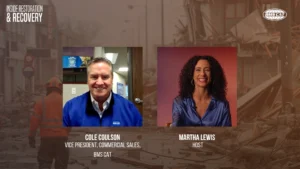Today’s HVAC Technicians Require Automation Training to Handle Smart HVAC System Technology
HVAC technicians entering the workforce need a different sort of training to handle advancements in today’s smart HVAC system technology.
Smart homes of the future may autonomously diagnose issues and request repairs, but current devices face challenges in seamless communication and decision-making. A recent incident highlighted a homeowner’s struggle with rising temperatures, putting their pet rabbit at risk. Despite multiple devices confirming the anomaly, the lack of cohesive communication meant the homeowner had to intervene—the root issue was a faulty HVAC capacitor.
Are today’s HVAC technicians adequately prepared for the smart HVAC system technology embedded into homes and businesses?
Harry Gruber, Program Director of Refrigeration and HVAC Technology at Western Technical College, believes new technicians entering the field could have a leg up on their predecessors due to exposure to new methods and systems in school. Still, more automation training is needed to handle smart HVAC system technology.
Harry’s Thoughts
“It used to take me like four hours to do a round of our university up in Maine, and I would have to go building to building and manually take down all my readings and make sure everything’s running within its parameters. And when we implemented building automation, they cut me down to like 45 minutes. I could sit at my desk and have my cup of coffee. I was still accomplishing everything I needed to, but it was remote.”
Personal Experience and Advancements in Building Automation
“For myself personally, my background kind of stems from the Siemens Apogee side, and I was running university. And we transitioned into Siemens Apogee, and we actually converted all of our old pneumatic systems to the smart building automation slash energy management. And we were running 110-year-old buildings that we were able to retrofit with smart systems, as you said. Now that I’m in this position at Western Tech here, we’re able to kind of annually make different changes to the curriculum. And over the last 10, 15 years, building automation, it’s getting huge.”
Challenges and Opportunities in Building Automation Education
“One of the issues, though, is that it’s mostly on-the-job training. There’s no school or environment where they’re teaching it hands-on in a safe environment. It’s normally, all right, let’s work on it out in the field, but be careful, don’t touch this because we haven’t really taught you yet. So, just this year, we’re still waiting for accreditation approval from ACC and TWC, ACCSC, and TWC, but it’s going to be part of our curriculum. And we’re going to start teaching it in-house, not in-depth, but component familiarization, how components talk to each other.”
The Future of Automation and the Role of Technicians
“Over the years, a lot of technicians are starting to retire. And in our trade, we don’t have as many people filling those spots. And it’s harder for some of those senior techs; I don’t want to say senior, veteran techs to make that transition to the automation side because it’s just as much computer programming as physical component knowledge. So, having to integrate those two with this young generation coming up, they’re already tuned in with all of the computer stuff. They know how to do all that stuff. We need to teach them how the AC side works and tie those two in together.
I now have eight former students working for one of our local automation companies, and they’re all loving it and making great money. Instead of coming out making $15, $16, $17 an hour, they’re already making over $20, stepping out of the school immediately, going into this automation field. It’s the future, in my opinion.
It’s like my granddad used to tell me: it’s the want to; you got to be able to want to do it. It’s all self-paced. And it’s really having the foresight to know that we can utilize this as an institution, not here, but at a school district or something like that. Being able to have the foresight to say, all right, we can pick up efficiencies. And I tell you what, a lot of the time, they become budget-neutral plans. So, it’s a five-year like budget-neutral plan, say it’s a $1.5 million job. But over those five years, the money you’re saving essentially pays for itself. And that’s how I was able to do it. But at my old university, anybody can do it. Anybody, anybody can do it. But it’s that want to, you want to, because it’s not fun. By any means, it’s not fun, but the end goal of efficiency, it’s just, it’s there.
And anybody can do it, young old, but this younger generation does; they kind of have a leg up, I feel because they’re already stuck to their phones as it is. And then the computers, and it kind of translates, but anybody can learn it. Anybody can. And I wholeheartedly recommend everybody coming through the curriculum try to see if you can go this way because it’s just, it’s very beneficial.
Component familiarization is also learning how the computer automation system works. Just like our trade is, how it’s the jack of all trades, knowing a little bit about a lot kind of helps. You don’t need to be a subject matter expert per se in computer programming to pick up automation systems, but it does help if you’re familiar with how it works. Like fundamentally, like what drop points are, what ties into what and what talks, what components talk to what, like you, just with the HVAC, we have to know compressor, condenser, metering device, evaporator, right? The four basic components, we have to know those. On the other side, with automation, we have to know what components talk to what. It’s not always point A to point B. Sometimes there’s some relays or something in the middle that have to divert the zeros and ones somewhere.”
Is There a Specific Area Where an Individual Can Advance Their Career?
“Man, that’s a really good question. I don’t think there’s one particular area. I think it’s up to each individual technician to how far they want to take themselves in this field because that’s the thing. If you’re fresh out of school or trade school and you go to work for a residential service company, you can become stagnant, and you can become comfortable making only $16, $18 an hour, but it’s that other technician sitting next to him that, hey, I want to learn this. I want to learn this. So, it really is up to the individual, in my opinion, on how far they want to take themselves. But anybody can learn it, but it takes a little bit of want to. Do you want to spend eight hours, two weeks straight, just learning how to make this little fan spin? It’s in-depth, and it’s time-consuming.”
Article by James Kent








